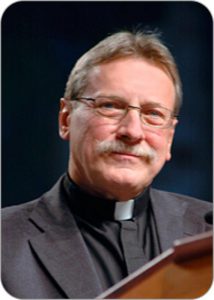
FROM THE PASTOR
What Year is it?
A pandemic wreaking havoc across the land. Social unrest leading to fires and violence in the streets. A politically divided people, seemingly on the verge of fracture. New information technologies bringing radical changes to mass communication, causing people to question what is true.
Quick – what year am I describing? It sounds an awful lot like 2022, to be sure, but I actually just described what life was like 500 years ago. These things we see happening in 2022 were happening on a much, much more devastating scale in the 1520s. There was a terrible plague in 1527. I’ll spare you the gruesome details, but let me just say that it was much, much worse than COVID-19. There was terrible social unrest in 1524 in which there were riots and chaos and bloodshed. Cities burned. It is estimated that 100,000 people were killed in these revolts. And talk about political divisions! In the 1520s it was the Saxon princes of Germany on one side and the Pope and the Holy Roman Emperor, Charles the Fifth, on the other, their rhetoric and maneuvering against each other was vicious and calculating. The only thing preventing them from fracturing (for the time being) was that they faced a bigger mutual enemy in the Ottoman Turks who were knocking on their eastern border.
And then there was the new media technology which came with the invention of the printing press. This made it possible to spread information far and wide in the form of mass produced pamphlets. They were called flugshriften, which in German means “flying papers.” They were called this because they flew all around the country like birds. (Wouldn’t it be funny if they had been called “tweets?”) Martin Luther and his fellow reformers were masters of the flugshriften, these pamphlets. It was a positive development in that now there wasn’t just one authority controlling all the information anymore, but it came at a cost. As others caught on and these pamphlets exploded with all kinds of different claims, people started to wonder what was really true.
I don’t want to minimize the struggles we are going through in 2022. They are real. Things have been hard. We have been facing challenges that we never imagined we’d be facing, and we’re facing them all at once. But they have been faced before by our ancestors in faith. In fact, the things we are dealing with today were all dealt with by the Lutheran reformers on a much bigger scale. And where did they turn? Where did they turn for comfort? Where did they turn for wisdom? Where did they turn to find truth? They turned to God’s Word. In a world that was literally sick and burning and divided and confused, they turned to the scriptures.
A favorite scripture for Martin Luther was psalm 46, the psalm for Reformation Sunday:
“God is our refuge and strength, a very present help in trouble. Therefore we will not fear.”
This psalm served as the basis for the great Reformation hymn, “A Mighty Fortress Is Our God.”
In the Gospel for Reformation Sunday in John, chapter 8 Jesus says to us: “You shall know the truth, and the truth shall make you free.”
Those who are grasped by the truth of the Gospel have the freedom to be for the world, to serve the neighbor. That, finally, is the power of the Reformation. What began as a crisis in pastoral care, in a concern that we not seek to escape from a confrontation with our mortality and a life apart from God (which we call sin), is a powerful word to us: the Gospel sets us free for truth, for service, for living for others. That alone authentically renews and reforms the church. St. Luke’s future will not come through schemes for survival, but from the truth that we are set free to serve in an always renewing and reforming mission in this season in our ministry, in a time of challenges and opportunities similar to those in the days of the Reformation 500 years ago.
My cousin, Walter Bouman, was a Lutheran pastor and seminary professor. He spoke of being in East Germany in the years before the wall came down and the country was reunified. In Leipzig, on Fridays at 6:00 p.m. many Protestant\Lutheran churches would schedule a half hour of “Music and Meditation.” He remembers being at St. Thomas Kirche during one of these events. After the brief service he asked the young man sitting next to him whether he belonged to the church. “No,” he said, “I am not churchly.” “Why do you come?” Walter asked. The young man thought for a moment, then said, “The church should be an island of truth and freedom. To come here should be like emigrating without leaving your country.”
Indeed. St. Luke’s. An island of truth and freedom. Let us emigrate there together on the Festival of All Saints this coming Sunday. And let us offer this “island” of truth and freedom” to our neighbors in Park Ridge and beyond.
Pastor Stephen Bouman

